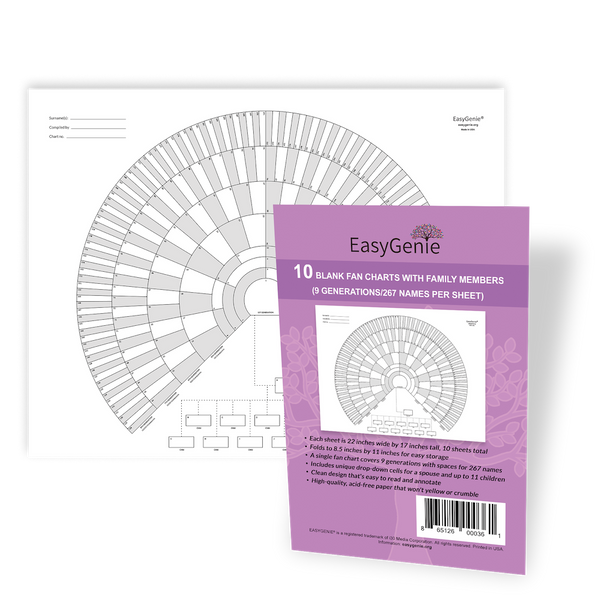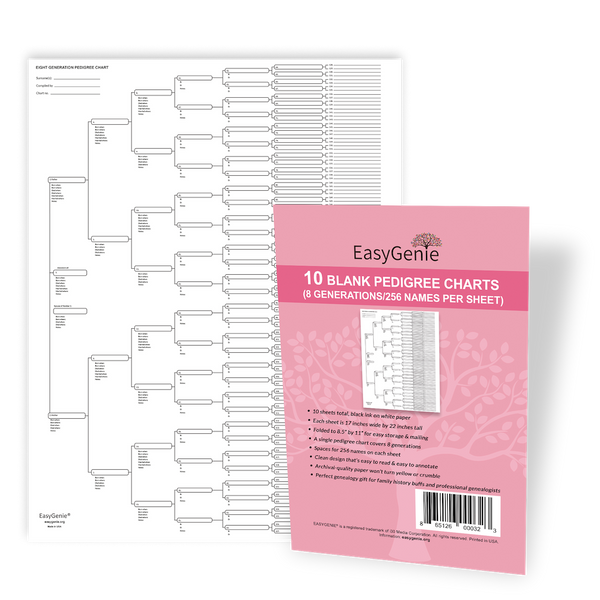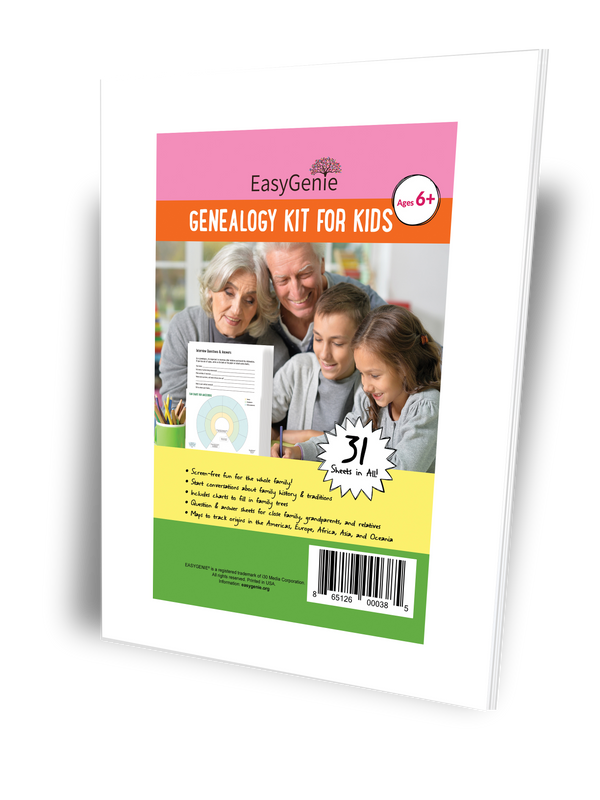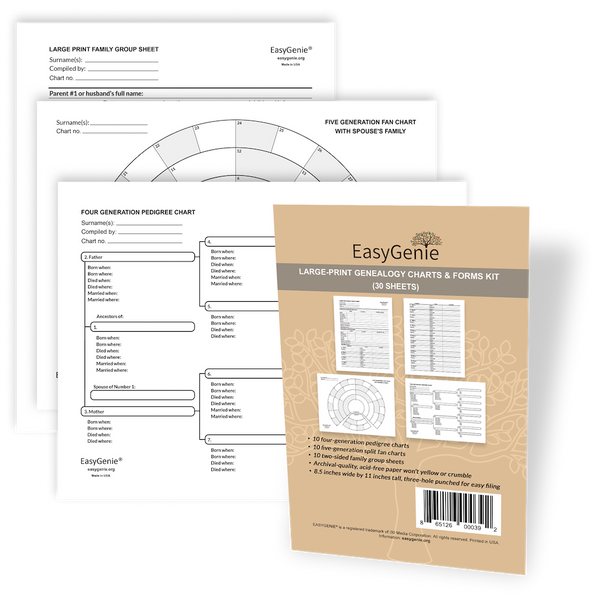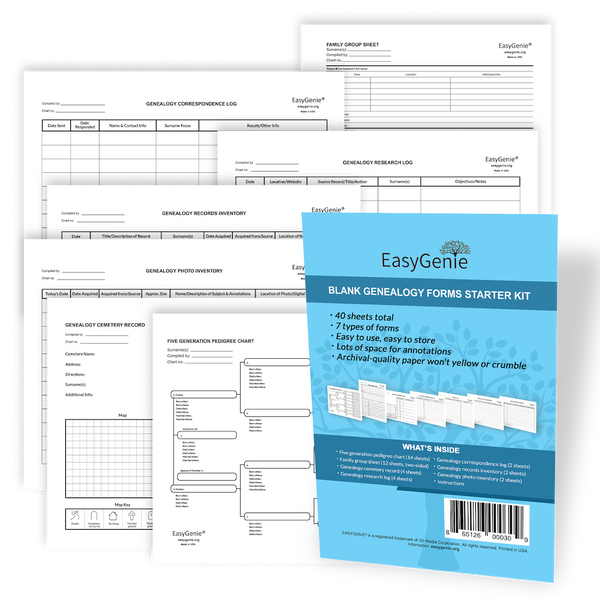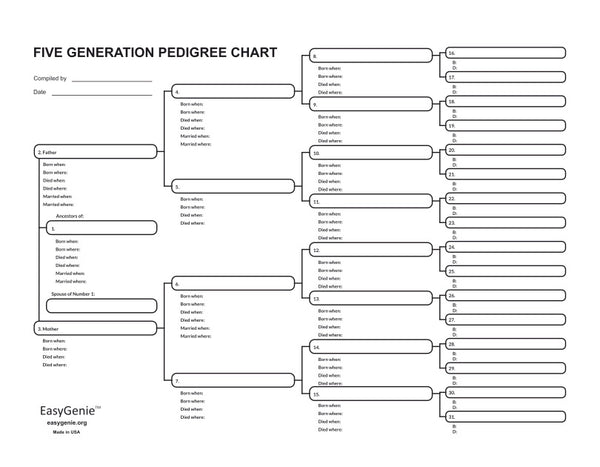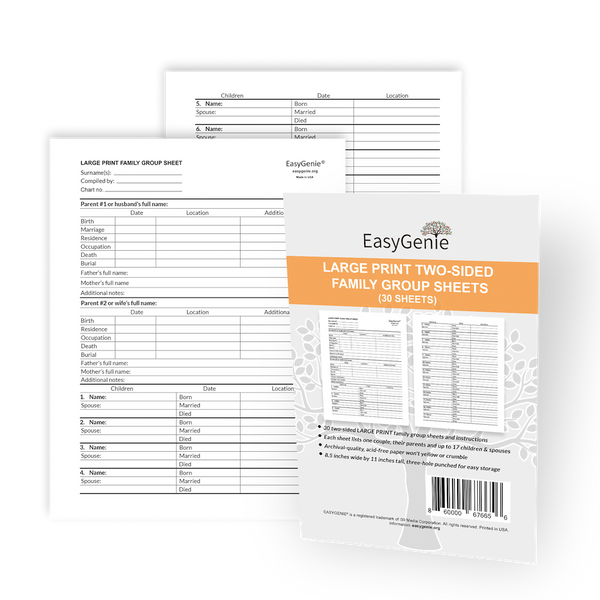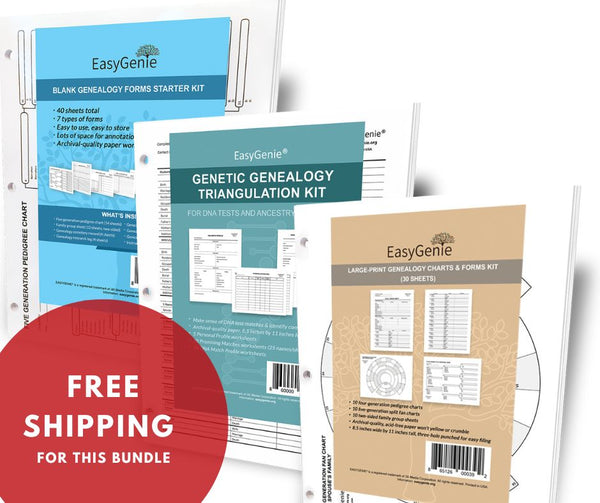
What's your "favorite" document for genealogy research?
Ian LamontLast month, we posed a question on the EasyGenie Facebook page:
What is your favorite document for genealogy research?
A. Vital records
B. Census
C. Probate
D. Other
On the EasyGenie blog and in this newsletter, we have regularly pointed to the importance of vital records, such as birth, death, and marriage certificates. However, of the two dozen respondents, "A" (vital records) was not the most frequently cited favorite source. Instead, it was B - census records.

Census records get a bad rap in some quarters. Older census records are very sparse, sometimes not even recording wives' and children's first names, and only giving a rough estimate of ages. The data in census records can be inaccurate - enumerators had a lot of work to do and sometimes did not properly spell names or get the ages or relationships right. If the head of household was not at home, children or neighbors may have served as informants, and passed along bad information which became part of the written record.
But census records have advantages over vital records. They are generally easier to access online (FamilySearch has many free census images). They show everyone in the household, not just the core family members. They show neighbors, which sometimes includes current or future relatives.
And census returns are fun! When we first got serious about genealogy and family history, the first records we found were local census records from the 1880 federal census. It was eye opening the first time we had a "hit." It was a snapshot of a family - our people - from more than 100 years ago!

For "D" (Other) we expected things like letters, naturalization petitions, and property deeds. One person did have a wonderful story to share about love letters:
"The over 100 love letters my father wrote to my mother when they were courting in 1954-55. They were in different states for most of the time and phone calls were too expensive. Not only did they give insight into who my parents were, but also the times and places in which they were living."
But many more people recommended obituaries. And no wonder - not only do obituaries contain basic data about birth and death, but also they frequently contain stories or other facts that may not be listed in vital or census records.
Through an obituary, we learned of an ancestor was a well-known sports referee in his community. Another had business in Cuba. A third was the widow of the local newspaper publisher. One ancestor, who died young, had a moving obituary that detailed how his closest friends came together to see him off.
So what's your favorite genealogy document? Leave a comment, or join the discussion on our Facebook page.
